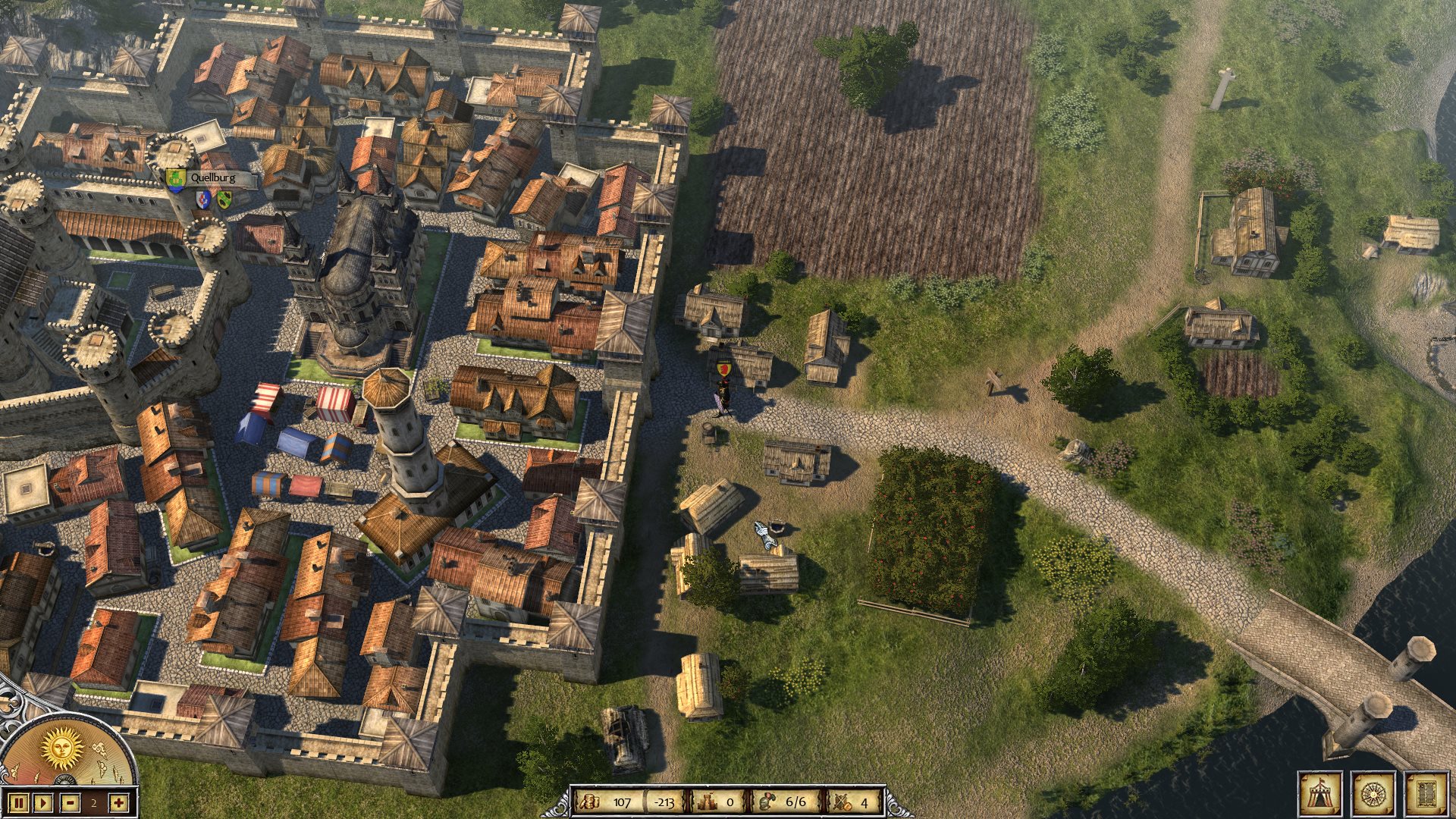Our Verdict
Legends of Eisenwald is a slightly rough-hewn romp through Germanic legend that's engaging and entertaining despite its lack of depth.
PC Gamer's got your back
What is it? A tactical RPG/adventure.
Influenced by: King's Bounty, Darklands, Heroes of Might and Magic
Play it on: Dual-core CPU, 4GB RAM, Nvidia GTX 500 series GPU
Alternatively: King's Bounty: The Legend (79%)
Publisher: Aterdux Entertainment
Developer: Aterdux Entertainment
Release date: Out now
Copy protection: Steam
Price: $30/£23
Multiplayer: None
Link: Official site
I declared in my Early Access review of Legends of Eisenwald that it isn't really an RPG at all, and having now played the release version, I stand by that assessment. The core elements are there, in minimal form: You play as a Knight, a Baroness, or a Mystic, and gain experience and levels while interacting with NPCs, battling enemies, and completing quests. And yes, lots of people consider Diablo an RPG (although I don’t), and I’m probably splitting hairs here. But roleplaying games, in my eyes, are about freedom and choice, and taking on the game world on my own terms. Much of Eisenwald, on the other hand, is about doing what the designers want, in the way they want it done. It’s such a static and straitjacketed experience that to my mind, it's far more akin to an old-fashioned adventure.
The lack of meaningful choice is apparent even in the early stages of the game. My four vassals had fallen to infighting while I was off doing the tutorial, and my first task upon returning was to bring them under control, not through negotiation or questing, but by killing at least two of them. There was simply no option to deal with them in any other way, and the only decision left to me was who would live and who would die. I clearly wasn't handling a situation—I was solving a puzzle.
But that's not necessarily a bad thing. As adventures go, Legends of Eisenwald is a pretty good one. I fought bandits and rebellious peasants, zombies and ghosts, necromancers and cranky knights too big for their britches; I cursed the heavens for my misfortune, fled from betrayal, met a mysterious damsel, saved the day many times and made a mess of it once or twice too. It's not a very deep experience but it is very broad. I sometimes didn't know what I was doing, thanks to both the complicated plot and the occasionally vague quest instructions, but there was always lots to do.
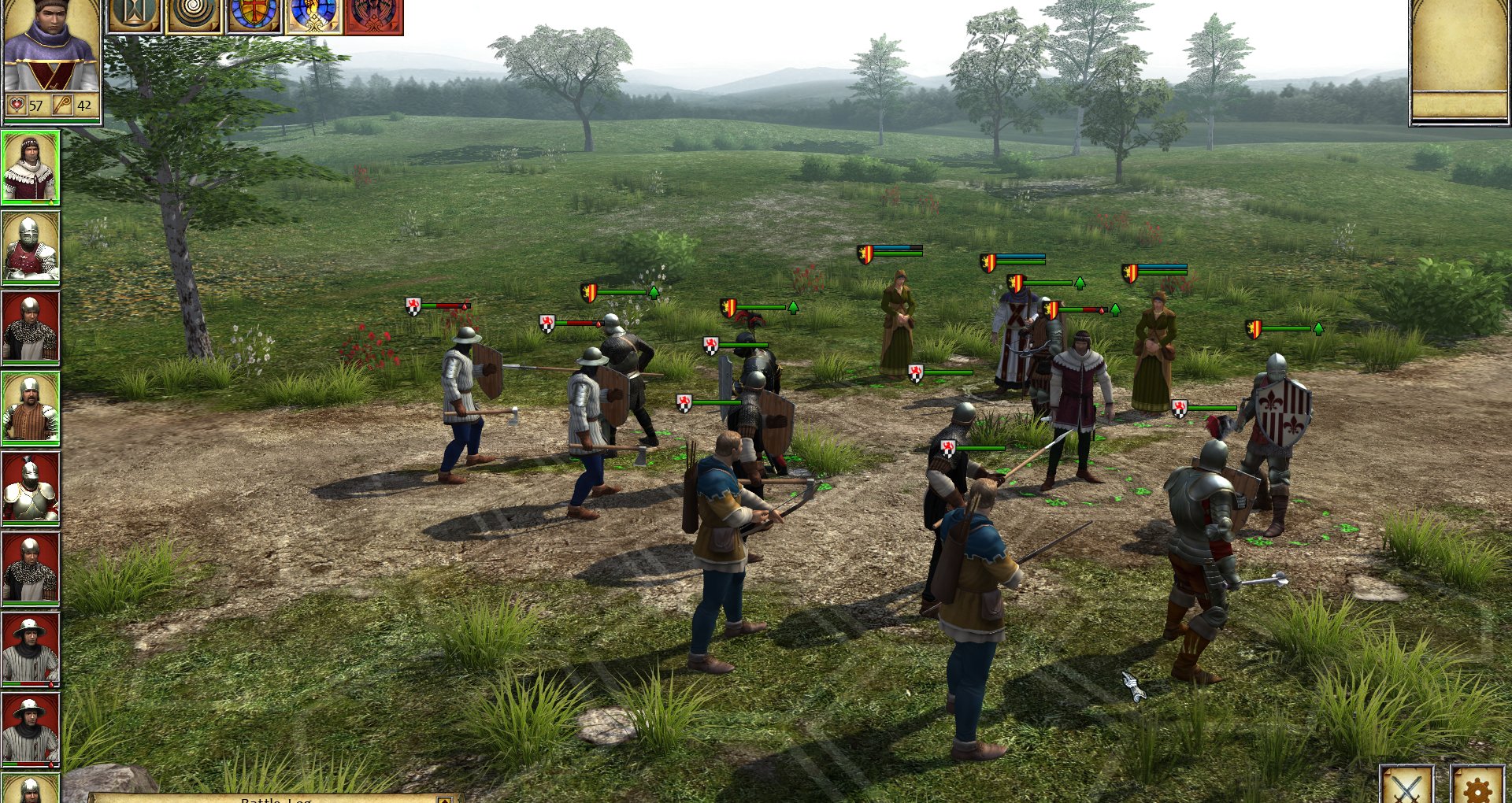
A simple life of adventure
I spent my time—a lot of time—wandering around 3D overland maps replete with villages and cities, temples, taverns, various sorts of ruins, wandering NPCs of differing alignment, and a day/night cycle that looks great and also determines when some quests can be undertaken. Most plotline quests are unsophisticated and usually end in a fight, but I found that the optional side quests, typically revealed through tavern gossip, were much more interesting: Using a bishop's skull to lay two ghosts to rest (and gain a powerful enchanted necklace), for instance, or solving the mystery of a tavern that burned to the ground as the patrons sang and danced.
Adventuring parties can have as many as 12 characters, your character included, and that backup is handy when it's time to fight (which it often is). But unlike, say, my Wasteland 2 pals, I never formed any kind of attachment to them. Characters of the same class have identical appearances, and customization, aside from equipment, is determined strictly by choosing branching paths on their advancement tree: A Bowman can become an Archer or a Crossbowman, but aside from that single choice the archery progress path is locked. Nor is there any party banter or side quests, or anything that makes them feel ‘alive.’ They're Freeman's followers from Half-Life 2, but with less personality, and even when I lost my entire party (and yes, it was my fault), I shed no tears because I could almost immediately hire a bunch of other guys who were, aside from their lower levels, identical to my previous companions.
Combat is central to Legends of Eisenwald, but it's very simple. Battles are turn-based and take place on a hex grid, with the order of attacks determined by each character's initiative. But characters must attack the enemy nearest them, even if they're unable to do any damage (as is often the case when fighting ghosts), and they cannot move to gain a more advantageous position without attacking someone at the end of their turn. This leads to some odd behaviors—fighters ignoring serious threats in the distance so they can whack at the pitchfork-wielding stinko standing beside them—but it also streamlines the action by eliminating much of the complexity commonly seen in turn-based combat. I found it weird at first, and I’m sure that anyone looking for deep, visually-rich combat (battle animations are very basic, and spell effects are virtually zero) will be disappointed. But I've grown to like it, because it doesn’t get in the way: I can be the hero without being very good at tactical combat.
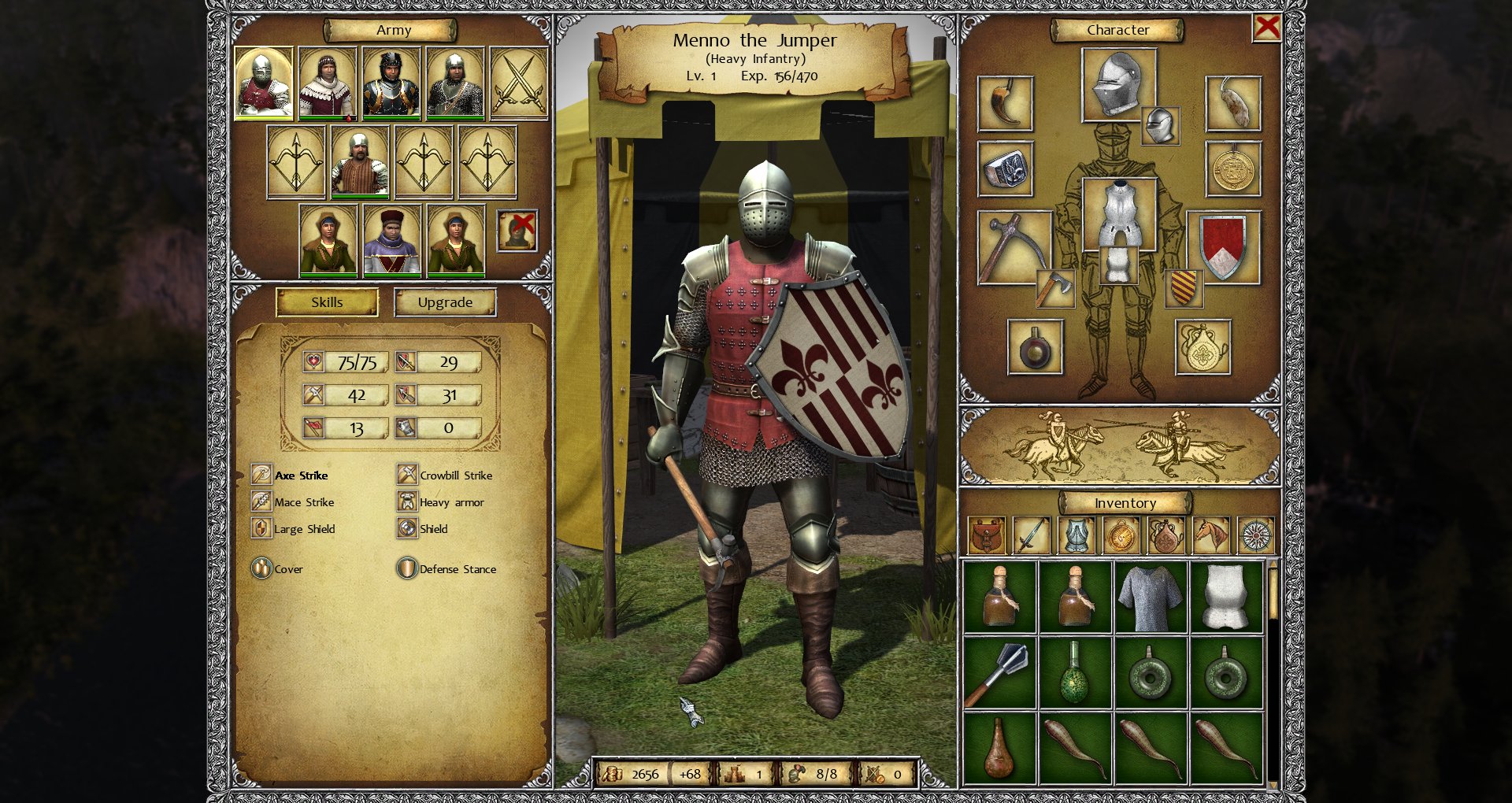
Destiny drives me
I ran into relatively few technical problems while I played, limited to the (very good) music, which drops out with regularity, and a couple of crashes. The English translations have significantly improved over the Early Access release, but you can still notice that the script wasn’t written by a native speaker. Its treatment of women and minorities may also strike some players as uncomfortable: There are a few unflattering references to Jews (one particularly greedy and unscrupulous merchant, Jeronim the Jew, has eyes and mannerisms that clearly identify him), and there's a smith described has having yellow skin and slanted eyes. Women, the Baroness notwithstanding, are chattel.
What I found most disturbing within the context of the game were the moments in which I, the hero, acted in a decidedly unheroic fashion. In one such instance, I came across a damaged bridge across a deep chasm that I very badly needed to cross. I made my way to the nearby village of Goat Path and demanded that the peasants fix it immediately. They begged off, saying that they didn't have the equipment or tools needed to undertake the extremely dangerous job; besides, a proper repair crew was expected to arrive in a few days. I couldn't wait, and so, with the backing of their liege lord, I gave them a choice: Fix the bridge or face my blade.
They fixed the bridge, and as they feared, several of them fell to their deaths. Some of those who remained called me "murderer" under their breath, but I made my escape—and then, once I crossed, I destroyed the bridge to slow my pursuers. A prudent move, sure, but it still felt like I was piling insult onto injury, and it all came about not because I was playing as a villainous character, but because the game was scripted to unfold this way. I played through the segment a few times, selecting from among the few different choices available, and the outcome was always the same: bridge fixed, peasants dead, and noblesse oblige forgotten for the sake of a quick getaway.
But even then, the feeling of being a supreme dick was fleeting because these decisions were never really in my hands. It was all, quite literally, destiny. Despite those occasional bits of inflexibility and nasty behavior, I had some real fun with Legends of Eisenwald. It’s lightweight, and closer in many ways to King's Quest than Baldur's Gate, but it's also big, dense, earnest, and ambitious without overreaching. In light of all that, quibbles over genre conventions don't seem like such a big deal.
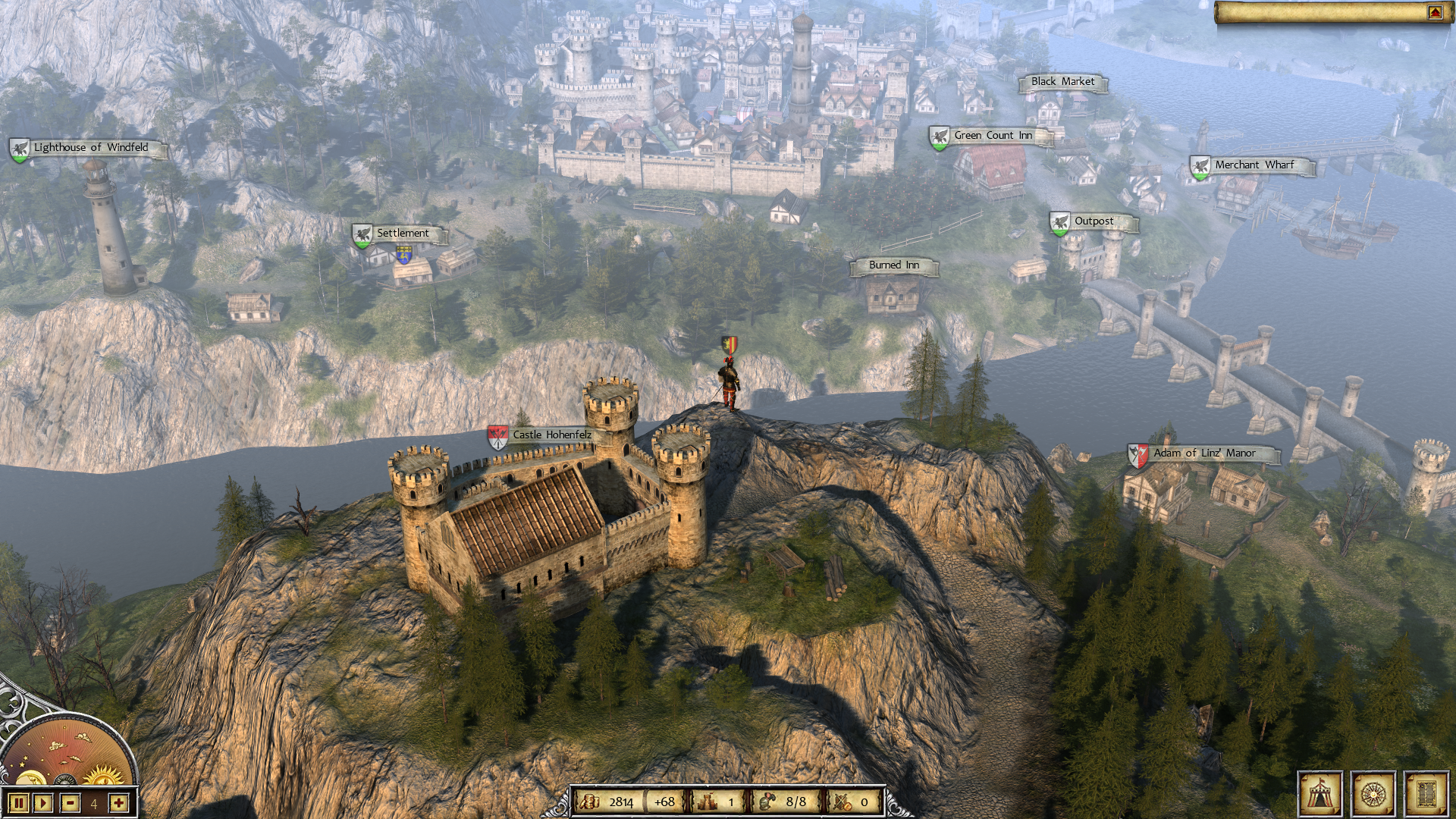
Legend of Eisenwald's medieval Germany may be a rough place, but it sure is pretty.
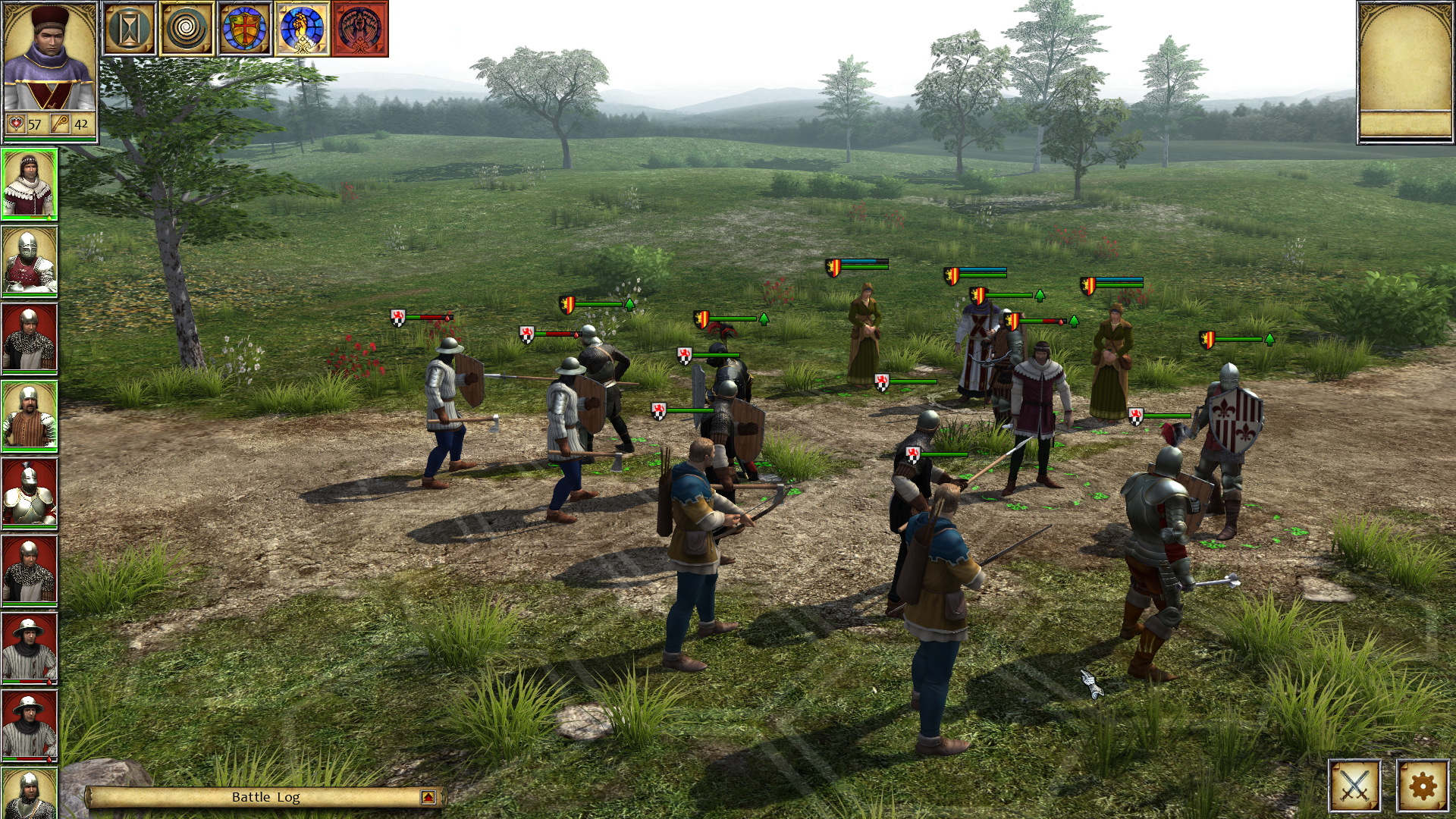
The overhead view of combat can be swiveled or zoomed for a better view.
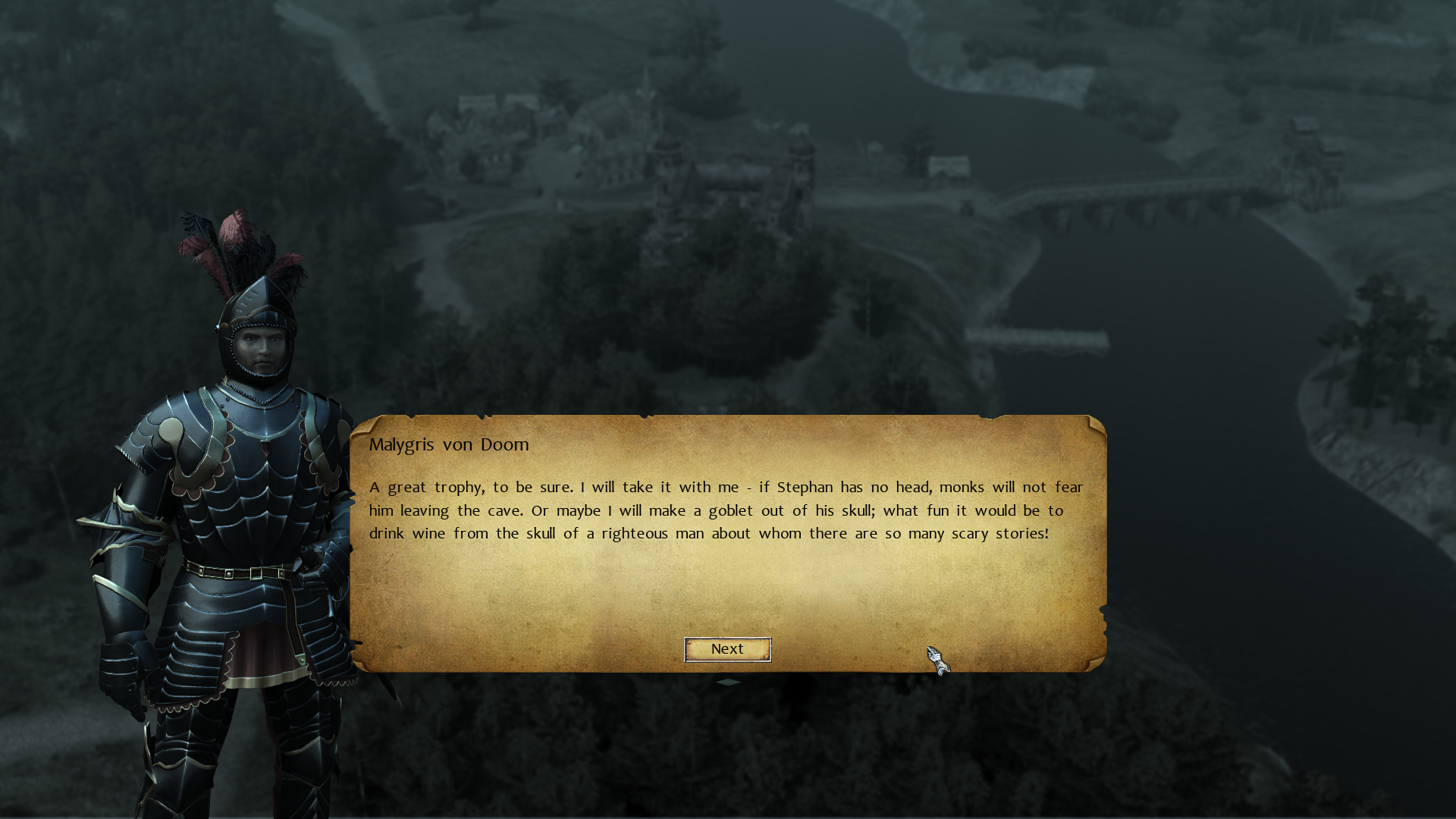
At times, you will literally get medieval on someone.
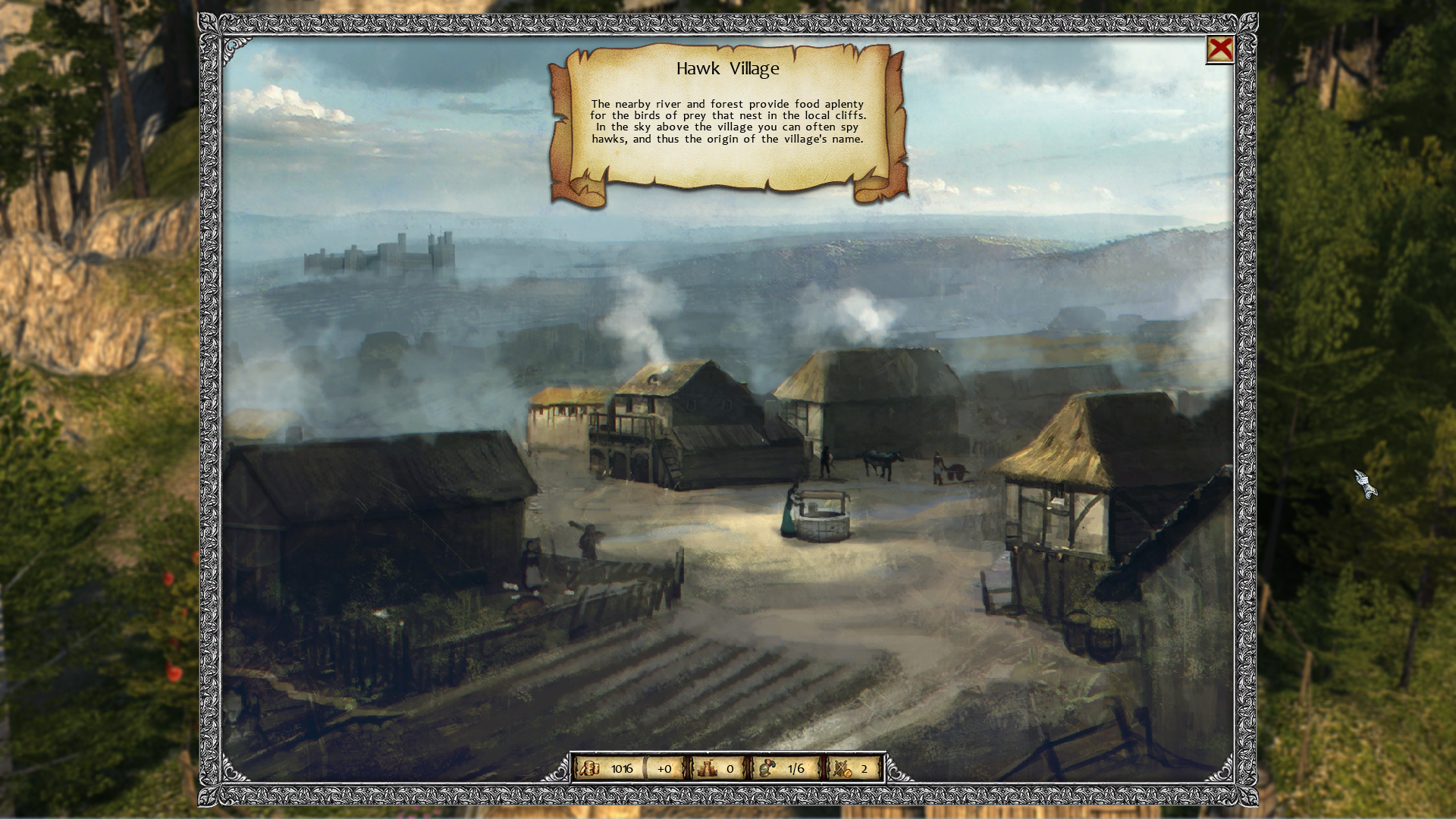
Quellburg is the big city in your homeland of Lahnstein.
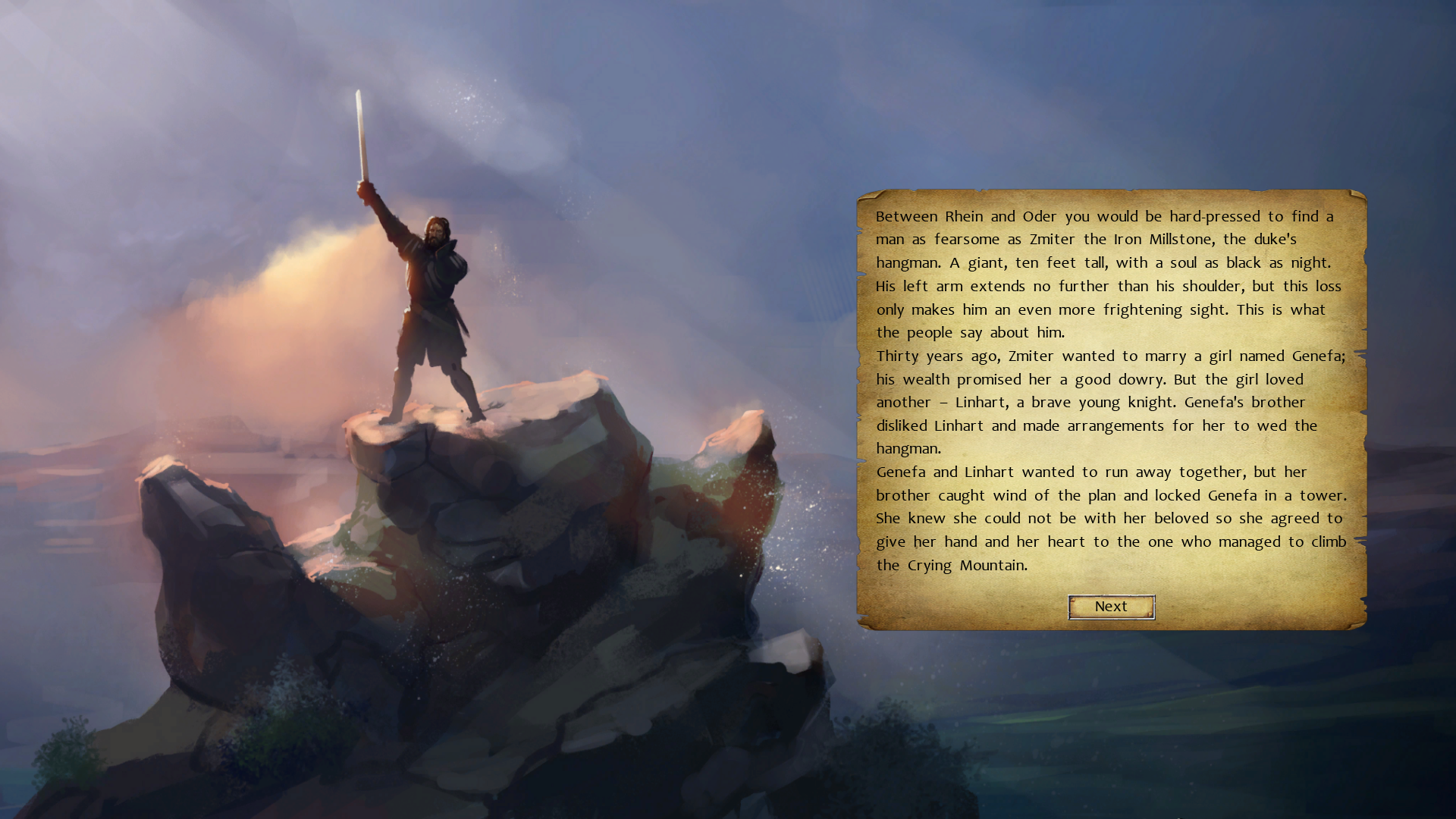
Appropriately, Legends of Eisenwald is filled with legends, and many have some element of truth.
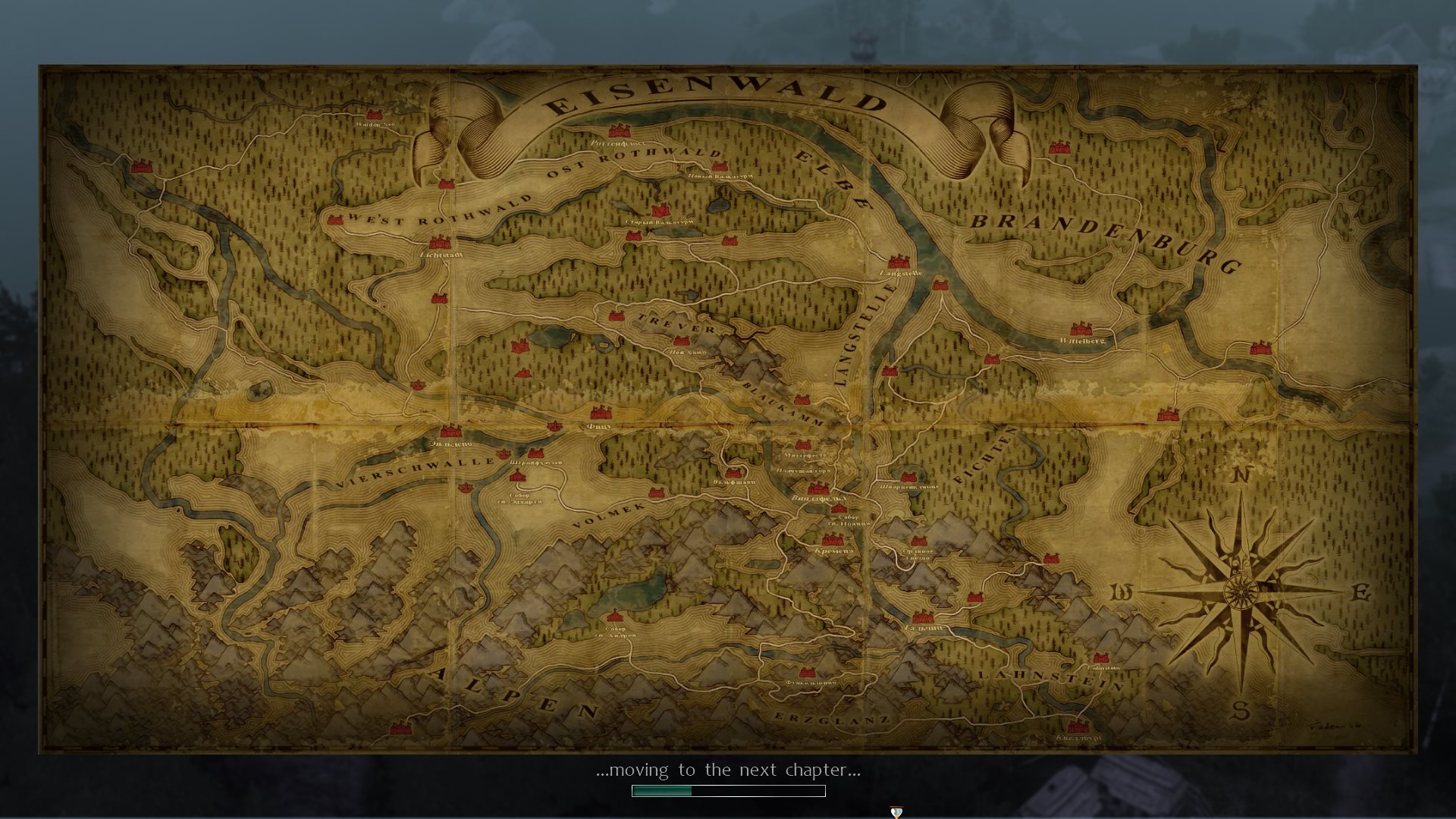
The between-chapters loading screen provides a rough map of the game world.
Legends of Eisenwald is a slightly rough-hewn romp through Germanic legend that's engaging and entertaining despite its lack of depth.

Andy has been gaming on PCs from the very beginning, starting as a youngster with text adventures and primitive action games on a cassette-based TRS80. From there he graduated to the glory days of Sierra Online adventures and Microprose sims, ran a local BBS, learned how to build PCs, and developed a longstanding love of RPGs, immersive sims, and shooters. He began writing videogame news in 2007 for The Escapist and somehow managed to avoid getting fired until 2014, when he joined the storied ranks of PC Gamer. He covers all aspects of the industry, from new game announcements and patch notes to legal disputes, Twitch beefs, esports, and Henry Cavill. Lots of Henry Cavill.
